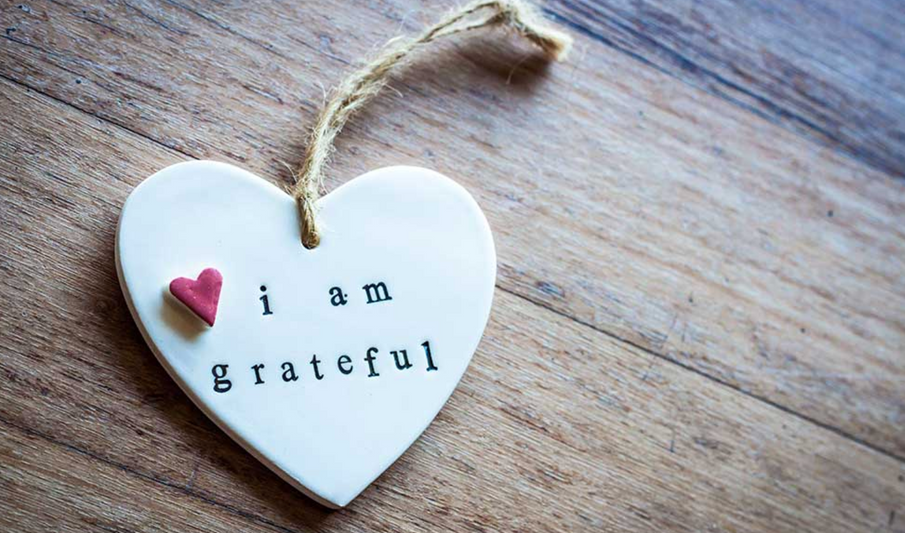Gratitude (from a perspective you've never heard before)
Written By: Kali Greff

A girl I knew in high school was the walking epitome of gratitude. She seemed to have mastered positivity. She was grateful at a spiritual level, really.
And then one day, the unthinkable happened. She was raped past the last streetlight in her hometown by a close friend. And overnight, Amber became unrecognizable. She drowned in her own suffering. She gave up on God. She lost hope.
How does this relate to gratitude? Keep reading.
When it comes to gratitude, you've probably heard it all. Adopt an attitude of gratitude. Take time to recognize the things you're grateful for at the end of the day. Wake up and thank whomever you thank for the blessing of a new day.
I mastered gratitude...or so thought.
I was doing all of those things. Journaling. Circling back at the end of the day. Thanking my maker. Thanking those around me. Really taking time to be present, mindful, and grateful for each opportunity life threw my way.
But you see, I wasn't quite doing it right. I was grateful for wealth, health, and happiness. I was grateful for family. For career opportunities. For the roof over my head. For moments of validation and praise. For food on the table. But never once was I grateful for suffering, which means that despite all of my work toward an "attitude of gratitude," one life-altering moment could have permanently derailed me. A serious diagnosis, a lost job, or the death of a loved one - all very normal experiences that most of us face at some point in time - would have catapulted me into suffering. And like Amber, I didn't know how to be grateful for suffering.
So...how do you prepare for suffering?
In my experience, building resiliency that would allow me to be grateful even in times of suffering required me to recognize and accept certain truths. Here they are: 1) I am not and will never be in control; 2) suffering is inevitable; and 3) through suffering I gain.
Let's dive into those a little deeper.
I am not and will never be in control.
Much of our suffering lies in the irony between our delusion of control and the reality, which is largely lack of control.
While you have control over how you process the things that happen to you, you have little to no control over the things that happen in your environment. And in many cases, it's not the things that happen to you, but your agony over your lack of control, that causes suffering.
We cause ourselves agony when we think we should be in control.
Recognize now that you're not in control of many of the circumstances you will face, and work to be at peace with that.
Suffering is inevitable.
Nearly every religion agrees that suffering is inevitable due to our own selfish desires.
If you're on the mountaintop today, know that you will be in the valley soon. Natural disasters like tornadoes and earthquakes come when they come and there's nothing you can do to prevent them or stop them. Illness can strike at any time, and while you can reduce your risk, you can never eliminate it. You will lose loved ones during your time on Earth. Your friends and family members will suffer from addictions. People you love will inevitably hurt you. Despite the efforts you've made to be financially secure, one catastrophic event like a lost job or a major illness can leave you in financial ruin overnight.
Suffering is inherent to life, but it doesn't have to derail us if we can learn to anticipate it.
Through suffering I gain.
Now that I know that I'm not in control and suffering is inevitable, I can rise above suffering to grow by asking myself, What am I meant to learn from this?
I know that through suffering I gain.
When I lost a loved one, I learned how to love those still with me a little better.
When I lost my job, I learned that my value is not in my title or salary but my status as a human being.
When I faced illness, I learned that my body is merely a vessel for my soul. I learned that I'm stronger than I ever believed.
When I experienced heartbreak, I better understood the pain and suffering of those around me.
When those I trusted abandoned me, I drew nearer to my maker.
When I faced death, I learned what courage looks like.
When I was persecuted, I blazed the path for those who come after me.
You see, once you know that suffering is inevitable and you don't have control, you can focus on how suffering will build the man or woman you were destined to be. And then you can be grateful for the opportunity to suffer.
So what does gratitude really look like?
Gratitude is all of the things you thought it was before: starting your day with a grateful heart and taking a moment to be thankful for positive experiences throughout and at the end of your day. But it's also recognizing the value of suffering and welcoming it into your life.
Journaling can help you reach the highest form of gratitude. I've found that journaling gives me more time to think through the most complex situations before I decide how I think and feel about them. In my thinking, I may go through a myriad of negative, lamenting thoughts before I'm able to observe and redirect those thoughts. But in my journaling, I have time to question my motives and assumptions before putting pen to paper. Perhaps more importantly, the template I use requires me to seek out gratitude in even my lowest moments.



Leave A comment